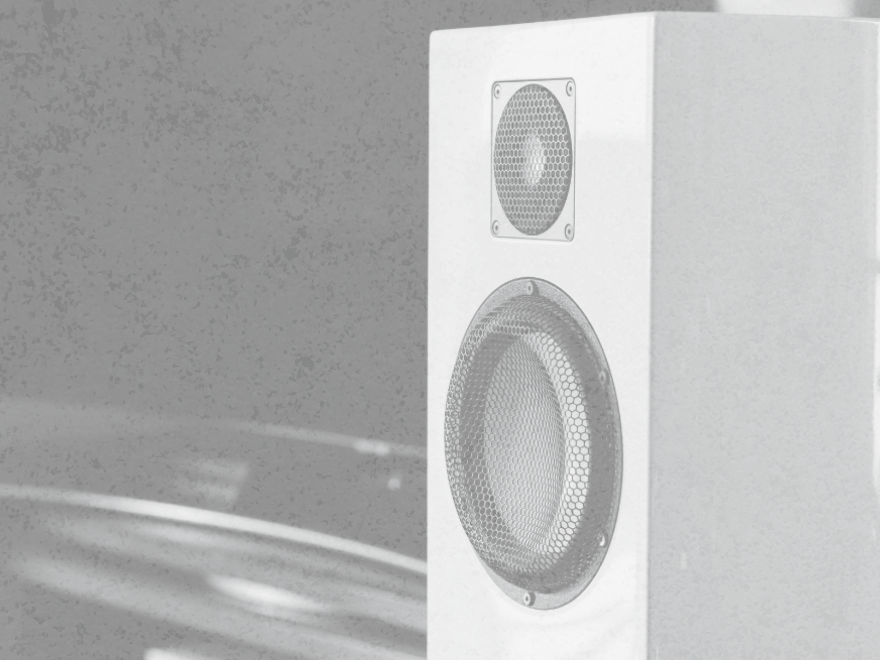Optimising sound quality in small spaces is crucial for achieving an immersive and enjoyable audio experience. The right speakers will give your home theatre, music room, or studio the best sound.
Finding suitable bookshelf speakers for small spaces can be a challenge, considering you need to factor in size, power, and acoustic properties. This guide aims to help you navigate these challenges by providing essential information and recommendations for selecting and setting up bookshelf speakers in tight quarters.
Key Features to Consider in Bookshelf Speakers for Small Spaces
Speaker size and form factor
Choose a speaker size and form factor that will fit comfortably within your space. Measure the available area to ensure that your chosen speakers will not only fit but also allow for proper ventilation and room for adjustment.
Power requirements and efficiency
Look for speakers with power requirements and efficiency that match your amplifier or receiver. Higher efficiency speakers generally require less power to produce the same volume levels, which can be beneficial in small spaces.
Frequency response and sound balance
Speakers that have a frequency response that covers a broad range of frequencies ensure accurate sound reproduction. Look for speakers that deliver a well-balanced sound, which are clear highs, detailed mids, and tight bass.
Cabinet design and materials
The cabinet design and materials can have a significant impact on a speaker's performance. Only go for bookshelf speakers with sturdy, well-braced cabinets made from high-quality materials, such as MDF or solid wood. The sturdy structure minimises vibrations and helps ensure optimal sound quality.
|
Feature |
Importance |
|
Size and Form Factor |
Ensure the speaker fits comfortably in the available space |
|
Power Requirements |
Match your amplifier or receiver |
|
Frequency Response |
Cover a broad range of frequencies for accurate reproduction |
|
Cabinet Design |
Minimise vibrations and optimise sound quality |
Understanding the Acoustics of Small Spaces
Effects of room size on sound quality
The overall size of your room plays an important part in the sound quality you'll achieve. Smaller rooms can cause more reflections and standing waves, which may result in audio distortions, such as muddiness and echoes. So understanding how your room size affects sound quality is essential for choosing the right speakers and setting them up correctly.
Impact of speaker placement and room layout
Speaker placement and room layout play critical roles in determining the overall sound quality. The distance between speakers, the angle at which they are positioned, along with furniture and decor can all influence the audio experience.
Common acoustic challenges in small rooms
Some common acoustic challenges in small rooms include:
- Limited space for speaker placement
- Excessive reflections and standing waves
- Difficulty achieving balanced sound
Understanding these challenges can help you make informed decisions when selecting and setting up bookshelf speakers.
Effective Bookshelf Speaker Placement for Small Spaces
It's important to know how to position bookshelf speakers in a smaller space for the most beneficial sound experience.
Optimal wall and shelf positioning
Position your speakers at least a few inches away from walls and on sturdy shelves or stands to reduce vibrations and reflections. If possible, place them at ear level when seated for the best sound quality.
Utilising speaker stands and mounts
Speaker stands and mounts can help you achieve the ideal listening height and angle. They can also provide additional isolation from vibrations caused by the floor or furniture.
Angling speakers for ideal sound dispersion
Angle your speakers towards your primary listening area to ensure the best sound dispersion. This will create a more focused and immersive soundstage, improving the overall audio experience.
Minimising interference from furniture and decor
Keep furniture and decor to a minimum in your listening area to reduce reflections and obstructions. If possible, avoid placing large objects directly between your speakers and the listening position.
Addressing Acoustic Issues in Smaller Spaces
Identifying and reducing echo and reverb
Echoes and reverberations can muddy the sound and degrade the listening experience. To minimise these issues, add soft furnishings and acoustic treatments to your space, such as curtains, rugs, and upholstered furniture.
Utilising acoustic treatments and soundproofing materials
Acoustic treatments, like bass traps, diffusion panels, and acoustic foam, can help improve the sound quality in small rooms by absorbing and scattering sound waves.
Using room correction software to optimise sound quality
Room correction software can analyse your room's acoustics and make adjustments to your audio system to optimise sound quality. Many modern amplifiers and receivers come with built-in room correction capabilities.
Top Bookshelf Speakers for Small Spaces
Recommended bookshelf speaker models and brands
Some recommended bookshelf speakers for small spaces include:
Wharfedale D310 Compact Bookshelf Speakers
Fyne Audio F300 Compact Bookshelf Speakers
JBL Studio 620 5.25-inch 2-way Compact Bookshelf Speakers
PSB Alpha P3 - Compact Bookshelf Speakers
Revel Performa 3 M105 Bookshelf Speakers
Comparing specifications, performance, and price
When comparing speakers, consider their specifications, performance, and price to ensure you are getting the best value for your budget. Bear in mind that more expensive speakers don't always guarantee a better sound quality.
Real-life examples and case studies
Reading reviews and case studies from other users with similar room sizes and setups can provide valuable insights and help you make informed decisions when selecting your speakers.
Integration with Home Theatre and Audio Systems
Matching bookshelf speakers with amplifiers and receivers
Ensure your bookshelf speakers are compatible with your amplifier or receiver by checking their power requirements and impedance ratings.
Combining with subwoofers for enhanced bass
Bass can be significantly enhanced with the addition of a subwoofer. This can be particularly useful if your bookshelf speakers have limited low-frequency response. Choose a subwoofer that complements your speakers and fits your room's size and layout.
Connectivity options for multi-room audio setups
If you're looking to plug your bookshelf speakers into a multi-room setup, then consider all the connectivity options you have available. Choose bookshelf speakers that are suitable for the setup, such as Wi-Fi, Bluetooth, and wired connections, which will ensure a seamless integration.
Conclusion
Choosing bookshelf speakers specifically designed for small spaces can significantly improve the audio quality in tight quarters. The size, power, and acoustics, all have an influence in making an informed decision on the right bookshelf speakers for your space.
Proper speaker placement and addressing acoustic issues can have a dramatic impact on sound quality. Hopefully this guide will give you the information you need to produce a truly immersive and pleasant audio experience in a relatively compact space.
With careful planning and consideration, achieving great sound in small spaces is possible. By selecting the right bookshelf speakers and setting them up effectively, you can enjoy a high-quality audio experience even in tight quarters.



Share:
How to Properly Set Up and Position Your Bookshelf Speakers for Optimal Sound
The Benefits of Bi-Wiring and Bi-Amping Your Bookshelf Speakers: A Comprehensive Guide